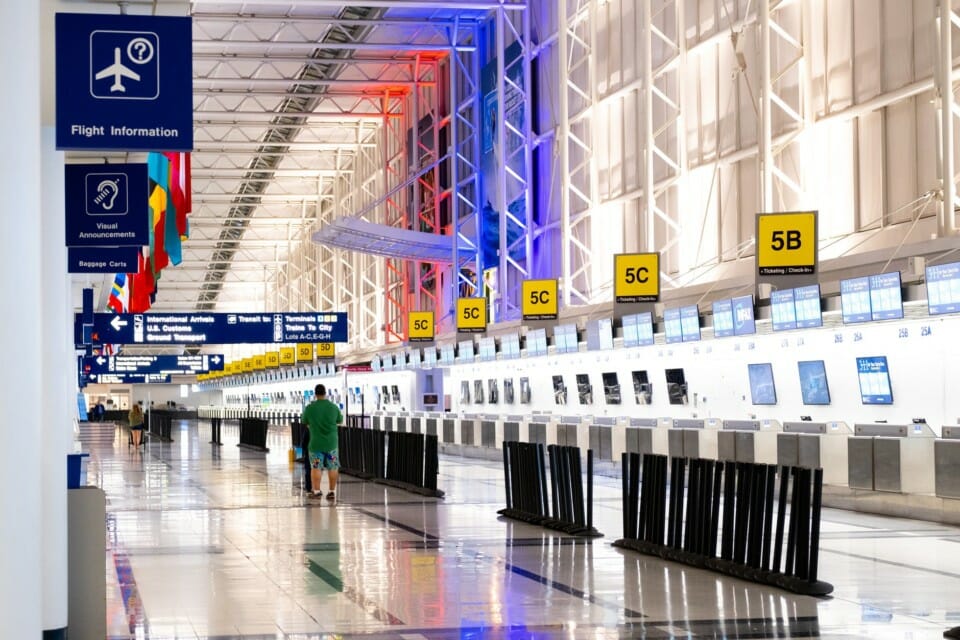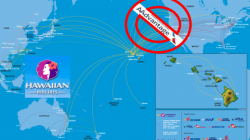The International Air Transport Association (IATA) is saying that global airlines will need $200 billion of government support to get through the coronavirus disaster. This is an unprecedented catastrophe as airline bookings continue to “fall off a cliff” in numbers that have never been seen by the industry. Yesterday, I wrote a post on how the coronavirus situation is affecting U. S. Airlines and what they need to do to manage their resources. You can read that post here.
What IATA Is Saying
Yesterday, IATA chief, Alexandre de Juniac said: “governments need to act decisively to support carriers as many companies are running out of cash”. He also went on to say“If we want to maintain a strong airline sector able to cope with this difficult crisis and provide the resources to ensure the recovery will happen in due time, we need governments to act strongly and quickly”.
IATA estimates that $150 billion to $200 billion are needed to shore up cash struggling airlines in the forms of:
- Direct financial support for carriers to compensate for reduced revenues, and therefore support liquidity due to travel restrictions imposed as a result of COVID-19;
- Loans like that DWP loan for benefits, loan guarantees and support for the corporate bond market by the Government or Central Bank, either directly to the airline or to commercial banks that may be reluctant to extend credit to airlines in the present situation in the absence of such a guarantee.
- Tax relief: Rebates and/or suspension on all employer imposed payroll taxes paid to date with an ongoing review for the rest of 2020, deferral or reduction in income taxes to date in 2020 and/or an extension of payment terms for the rest of 2020, along with a temporary waiver of ticket taxes and other Government-imposed levies.
This situation is financially precarious for international air carriers as they struggle with:
- International travel bans,
- Restrictions of intra-Europe travel
- Grounding of airliner fleets.
Brian Pearce, the chief economist for IATA is saying that “cash was running out for many airlines and that 75% of them had cash to cover less than three months of unavoidable fixed costs”.
The IATA call for economic support comes right after U. S. airlines were asking for government support of $50 billion.
Who IATA Is And What They Do
IATA was founded in Geneva Switzerland in 1945 by 57 founding airlines. Today, airline membership includes 290 airlines in 120 countries. IATA member airlines carry 82% of the world’s air traffic and it is highly likely that the airline you fly is a member of IATA.
IATA members benefit in several ways. Most importantly, IATA provides a powerful, unified and experienced voice that supports and promotes the interests of its members through:
- International recognition and lobbying
- Targeting key industry priorities
- Driving industry change
- Reducing costs
- Communication campaigns
- Training and other services
Boeing Wants A Slice Of The Bailout Pie
President Trump said yesterday that Boeing should get financial assistance from the federal government in the face of the coronavirus crisis. His statement said:
“Yes, I think we have to protect Boeing. We have to absolutely help Boeing. Obviously when the airlines aren’t doing well then Boeing is not going to be doing well. So we’ll be helping Boeing”.
He stated support for Boeing but he had nothing to say about U. S. aircraft supplies like GE who makes jet engines that power many airliners. The president’s position was for aid for the following:
- $50 billion for passenger airlines,
- $10 billion for cargo airlines and
- $10 billion to support airport operations.
Boeing has stated that they are looking for $60 billion in federal assistance mostly for loan guarantees that it needs. Here is what Boeing said in reaction to the President’s statement:
“We appreciate the support of the President and the Administration for the 2.5 million jobs and 17,000 suppliers that Boeing relies on to remain the number one US exporter, and we look forward to working with the administration and Congress as they consider legislation and the appropriate policies”.
Boeing also stated why they believe they deserve federal loan guarantees:
“This will be one of the most important ways for airlines, airports, suppliers and manufacturers to bridge to recovery,” said the company. “Funds would support the health of the broader aviation industry because much of any liquidity support to Boeing will be used for payments to suppliers to maintain the health of the supply chain. The long term outlook for the industry is still strong, but until global passenger traffic resumes to normal levels, these measures are needed to manage the pressure on the aviation sector and the economy as a whole.”
Should Boeing Get A Bailout?
There is a dramatic difference between what the airlines are experiencing and what is happening at Boeing. I am not a big supporter of how the airlines market and profit from their services but they had no control over the situation. They did not create COVID-19 or travel bans and restrictions that resulted from COVID-19. For the airlines, this was an unforeseeable disaster. The airline industry went under massive carrier consolidation after the great recession of 2008.
Boeing, on the other hand, dug their own financial hole with serious quality and management issues. The 737MAX was a disaster that could have been avoided in many ways but Boeing was on an extreme effort to cut costs and drive up profits. This financial storm was foreseeable.
Boeing now has a new problem on their hands. Just as the COVID-19 effect on the airlines wasn’t foreseeable, Boeing now has the problem of cash-strapped airlines deferring deliveries of new airliners. You can bet that one of the cash management tactics that the airlines will use to conserve cash is to delay the delivery of new aircraft. After the original purchase deposits, the airlines don’t have to make airliner payments until they actually receive new aircraft. They can and some airlines will delay deliveries. After all, if passenger bookings has fallen off a cliff, the last thing that airlines need is more aircraft that they can’t fill.
Final Thoughts
We certainly are in a global financial mess that will eclipse the world-wide recession of 2008. The airline and travel industries suffered huge financial losses and the number of airlines contracted as industry consolidation took place. For many businesses hurt by the COVID-19 crisis, they got caught up in a previously unimaginable financial crisis.
Boeing on the other hand, created its own financial hole long before the COVID-19 crisis. Their corporate culture focused on reducing costs and increasing profits at the sacrifice of quality. As much as I like Boeing as a passenger, they haven’t demonstrated that they “get it” and make sweeping changes to once again be a leader in technology and quality.

